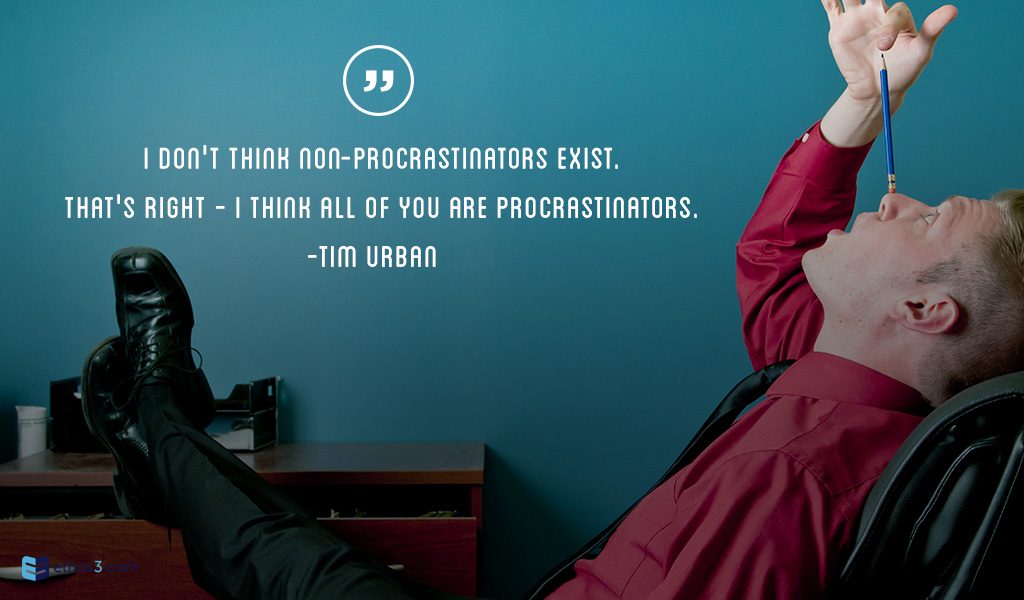Can a presentation about science be fun?
What if we told you that you needed to spend the next 14 minutes listening to a presentation about how our brain manages day-to-day tasks with a specific order of operations, and how this affects our work output. Sounds dry, right?
Let’s take this same pitch and give it to an incredible presenter, who knows how to deliver psychological information with a fun, humorous twist. Tim Urban’s TED talk, “Inside The Mind of a Master Procrastinator,” is one of the most popular talks in the series from 2016. Before we break down how he marries science and humor, watch the talk below to see what we mean:
The “We” Experience
Why is this such an incredibly popular TED talk? It all starts by hooking the audience with a unified experience. Even if “procrastinator” isn’t something you’d label yourself in mixed company, it is still a label that all humans have guiltily shared. If you want to deliver a TED talk like Urban, you should aim to start with a shared experience or even a shared fascination. Why do we procrastinate? is a perfect hook to a gripping talk.

A Dark Playground and a Monkey
Metaphors are an underused presenter’s tool. They make difficult concepts easy to understand by comparing them to things we encounter daily. Tim Urban skillfully uses metaphor when he describes the wasted time during procrastination as a “dark playground,” conveying both the aim for fun and the negativity in only two words. If you have difficult jargon or scientific information to share, try breaking it down into a more easy-to-digest metaphor during your talk. All you need to do is create a comparison and use the word “like” in order to make the connection for your audience.
Self-Deprecation Through Narrative
One thing successful TED talks share is that they incorporate the narrator into the fabric of the presentation itself. In this case, Tim Urban not only uses the “we” experience, but he also enriches the presentation with hilarious (and a little heartbreaking) stories of procrastination from his own life. Even the title can be read as ironic, as being a “master procrastinator” is not exactly honorable. If you want to achieve this same effect, go beyond just using a personal story. Don’t be afraid to share your own struggles with the audience in a way that creates empathy and a personal connection.
All of these aspects of the talk combine to create a presentation that is more like a delicious treat than a dry, informative speech on productivity. We all want to master procrastination, and we all can relate to his own struggles. If you need to deliver a talk with a lot of science behind it or a traditionally “dry” subject matter, take inspiration! Use these three tactics and make it lively.
Want to take some inspiration from other famous TED talks we’ve analyzed? Check out these related posts!
6 TED Talks To Help You Succeed At Work And Life
